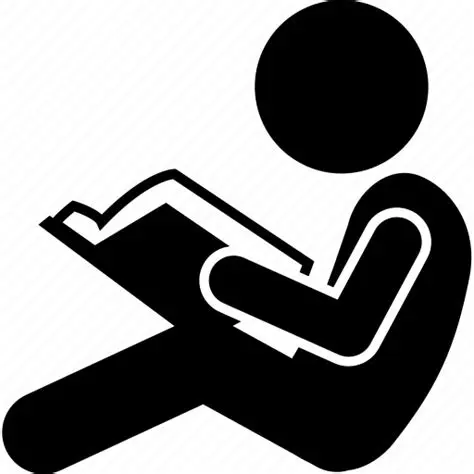The only thing I don’t like about the fediverse is the constant stream of people blathering on about how “we” supposedly need to centralize and homogenize it and fill it up with botspam, so that easily confused morons with short attention spans will move here.
- 1 Post
- 21 Comments

 5·1 year ago
5·1 year agoHuh.
I had no idea Marvel Groot was that old.
That seems to make it more likely that it’s not a coincidence though, particularly since while Marvel Groot existed, he was still very obscure. I can see Moorcock slipping the line in, and even giving the character that name so he could slip the line in, just for a bit of amusement.

 1·1 year ago
1·1 year agoBroadly, there are two different ways in which a person so inclined can set about projecting the image of an aficionado of great literature.
One is to read, understand and be able to discuss great literary works.
The other is to sneer at supposedly lesser works.
Obviously, the latter is much easier. In fact, it doesn’t actually require reading at all.

 6·1 year ago
6·1 year agoFinished Prime City by Michael Robertson. It’s the second book in a cyberpunk thriller series, and it was okay. It was a bit grittier than the first one, to its advantage, but while the first one pretty much stood on its own, this one was very obviously just an installment of a series.
Started Bounty Hunter - the third in the series. It’s not the last, but I suspect it’ll be the last for me. It’s okay, and there’s nothing really wrong with Robertson’s writing - it’s just all sort of generic, and I’m getting bored. It’s about time for something more challenging.

 6·1 year ago
6·1 year agoFinished The Anubis Gates by Tim Powers. The ending was a bit too contrived, but it was solid all in all.
Started and finished The Blind Spot by Michael Robertson. It’s a cyberpunk thriller set in a red-light district in a future metropolis - sort of reminiscent of George Alec Effinger’s Budayeen, but without the Middle Eastern flavor. It was a solid page-turner, but has a few shortcomings. The setting feels sort of Disneyfied - like a wholesomely superficial backdrop rather than an actual red-light district, with all that that entails, and the protagonist is an accurately rendered 16 year old, which is to say that she’s impulsive, impatient, over-confident and emotional. I can’t really fault Robertson for that - he did do a good job of writing a believable 16 year old. But that’s the problem - it was just sort of frustrating and exhausting watching her get all wound up and go rushing off too late to try to accomplish too many things in too little time.
Started Prime City by Michael Robertson - the next book in the series of which The Blind Spot was the first. Marcie is still impulsive and frustrating, and the story hasn’t yet hooked me as well, but we’ll see how it goes.

 3·1 year ago
3·1 year agoThe sex thing - I think it’s just a psychological thing that he’s never gotten past. I’ve known people like him (and both male and female).
What almost certainly happened was that he developed psychologically right up until he was somewhere in his late teens or early 20s and he hit a period during which he was on top of his game sexually. He was still in that adolescent phase during which sex is an all-consuming interest, and he had the skills and appeal to generally succeed in his pursuit of it, and he gave himself up entirely to that. And then he never progressed past that stage - he’s been locked ever since into the thinking of a teenage lothario.
It’s unfortunate just because it’s sort of equal parts creepy and tedious, but that’s the way it goes. I find him generally worth reading anyway, since he’s an extremely talented writer, and has a particular talent for conveying emotional nuance.
And it’s not as if sex is his only obsessively repeated theme. Though the others generally don’t stand out quite so much, he’s at least as likely to have his protagonists drink whiskey and listen to music, or go for aimless walks, or clean house, or iron shirts.
So be it.

 6·1 year ago
6·1 year agoFinished Kafka on the Shore by Haruki Murakami. I’ve been reading Murakami in publishing order for a few years now and I was excited to get to this one, since it’s one of his most popular, but it just didn’t really do it for me. It was predictably well-written - I can count on Murakami for that at least. Of course it was also predictably undermined by his sort of pathetic obsession with getting in the pants of every woman ever, but I’ve learned to look past that, so it wasn’t really a problem. It’s just… I can’t quite put my finger on it, but the whole thing felt sort of forced. It was good, but IMO not among his best.
Started and finished Replay by Ken Grimwood. It was odd and disjointed, but satisfying all in all. It’s about a man who dies of a massive heart attack, then awakens as himself at the age of 18, with his memories intact. It goes through his second life fairly quickly though, since that’s not really the point - it’s not just an “If I had it to do all over again” fantasy. Things get interesting when he comes back around to the moment of his death in his previous life, and he dies again, and reawakens younger again. Then the bulk of the story focuses on the nature and meaning and significance of this loop in which he’s found himself. All in all, I liked it, and would recommend it to anyone who finds the idea interesting.
Started The Anubis Gates by Tim Powers. I read it once before, but that was 20 years ago or so. It was the first of his novels I read back then, and inspired me to read a lot more of them, but then it got to the point that his novels were pretty much centered on drinking and only sort of peripherally about anything else, and I lost interest. But I’ve wanted to go back and revisit at least this one and On Stranger Tides, and the time seemed right. And it is just as good as I’d remembered - strange and convoluted and a bit contrived, but compelling.

 8·1 year ago
8·1 year agoI’ve never really understood the appeal. Goodreads is a pretty good source for synopses, and IMO that’s it. The reviews are mostly shit, the ratings are useless and the recommendations are pedestrian at best.
If book sites were restaurants, Goodreads would be McDonalds.

 1·1 year ago
1·1 year agoI liked the book all in all - it just had a lot of flaws, and that made it kind of a slog.
Since this was not just a first novel but a first novel that started out as a webserial, I think it’s safe to assume that his later books are better, so I’ll undoubtedly go back to him some time.
For the rime being though, as a sort of palate cleanser, I was craving something that I could count on to be well-written if nothing else, and Murakami definitely fills that bill.

 1101·1 year ago
1101·1 year ago“And by ‘we’ I of course mean ‘you’.”

 4·1 year ago
4·1 year agoYeah - I was sort of afraid of that. I like this place - you’ve done a good job here. But there’s no reason you should put yourself at risk. So it’d be a shame if it came to that, but it is what it is.

 5·1 year ago
5·1 year agoFor whatever it’s worth, I’ve both noticed and appreciated your efforts lately.
And just what I’ve seen of it via posts and announcements has already been enough to sort of vicariously exhaust me, so I can only imagine…

 6·1 year ago
6·1 year agoFinished John Dies at the End by David Wong. It was okay all in all - imaginative, but not very well-written.
Started Kafka on the Shore by Haruki Murakami. I’ve been working my way through Murakami in publishing order for the last few years, reading one every few months, and it’s time for this one. I’m thoroughly enjoying it so far.

 4·1 year ago
4·1 year agoThe Tell Me Why books by Arkady Leokum - Goodreads link Those probably had more to do with shaping me than anything else I’ve read.
When I was about eight or nine, I went through a period of reading lots of (juvenile) non-fiction - mostly biographies, history and myths. I don’t remember the specific titles, but I particularly remember reading biographies of James Cook and John Paul Jones, histories of ancient Egypt and medieval Europe, the myths of Perseus and Jason, and especially the history/myths surrounding the Trojan War.
And of course I went through a dinosaur phase, but the dinosaur book I remember most clearly was heavy on pictures and light on text.
Then when I was about ten, I switched pretty much entirely to reading fiction.

 3·1 year ago
3·1 year agoStill plodding through John Dies at the End. I suppose I’ll finish it, but not terribly enthusiastically.
Part of the problem is that David is just such a tedious asshole. He’s not even an interesting asshole - he’s just petulant and self-absorbed and dull.
And part of the problem is that it tries so hard to be witty, but it’s just mostly… not. It has its moments, but too many of the bits that were obviously supposed to be witty turns of phrase just fall flat.
It’s okay I guess, and I do want to see how it all plays out, but it’s just nowhere near as good as I’d hoped.

 692·1 year ago
692·1 year agoYes.
I have a friend who is extremely intelligent, endlessly curious and was raised in a locally well-established and notoriously generous and civic-minded family. So he was raised in that milieu of sincere kindness and generosity, and whenever he’s come across anything that interests him (which is seemingly something new every week) he seriously researches it until he understands it.
So it pretty much doesnt matter what the topic is - he knows something about it, but his personality has been shaped so that he’s attentive and considerate rather than pedantic and self-absorbed. I’ve lost track of the number of times I’ve seen him engage in obviously mutually enjoyable conversations with complete strangers over… pretty much anything.
I vacillate between thinking that it’s remarkable that he’s the way he is and that it’s remarkable, in a different sense, that that’s so uncommon.

 14·1 year ago
14·1 year agoI stopped trying to contribute to battles between reductionists many years ago, since they’re not coincidentally also binarists, so each just takes the fact that I’m not 100% in agreement with them to mean that I’m on the falsely dichotomous other side.
That’s an awful lot of why they’re so exhausting and discouraging - because I know from bitter experience that there’s absolutely nothing I can do about it. I’m constantly tempted to respond - just, if nothing else, to for instance point out that something as enormously complex as the US Civil War cannot possibly rightly be said to have been about one specific thing - but I’ve learned that that can’t possibly accomplish anything.
Should I then have just kept my mouth shut? Probably, in much the same way as I’d likely just keep walking if I saw two drunks brawling in an alley.
But I didn’t, and so be it.
And who knows? Maybe somebody somewhere will read this and think, “You know… it really is kind of dumb to reduce a complex issue to just one single idea, then get into shouting matches with people who have reduced it to some other single idea.”
Or not. And again, so be it.

 26·1 year ago
26·1 year agoThere are few things that exhaust and discourage me more than reductionists shouting past each other.

 4·1 year ago
4·1 year agoFinished Shampoo Planet by Douglas Coupland. It was okay. If nothing else, it’s worth it to read Coupland just to watch him turn phrases, but the story and characters were too similar to too many of his others.
Started John Dies at the End by David Wong. It’s good so far - maybe a bit too self-consciously quirky, but certainly engaging.
My namesake - Rottcodd.
Rottcodd is a minor character in Mervyn Peake’s Gormenghast books. He’s the caretaker of the Hall of Bright Carvings - a gallery of statues high up in a far distant corner of the castle Gormenghast. He lives there contentedly and peacefully by himself and rarely sees anyone, but through a window at one end of the gallery, he can see the castle spread out below him, and can barely make out tiny-with-distance people scurrying around doing… whatever it is that they’re doing.
And yeah - for better or worse, I identify with him so much that I swiped his name.